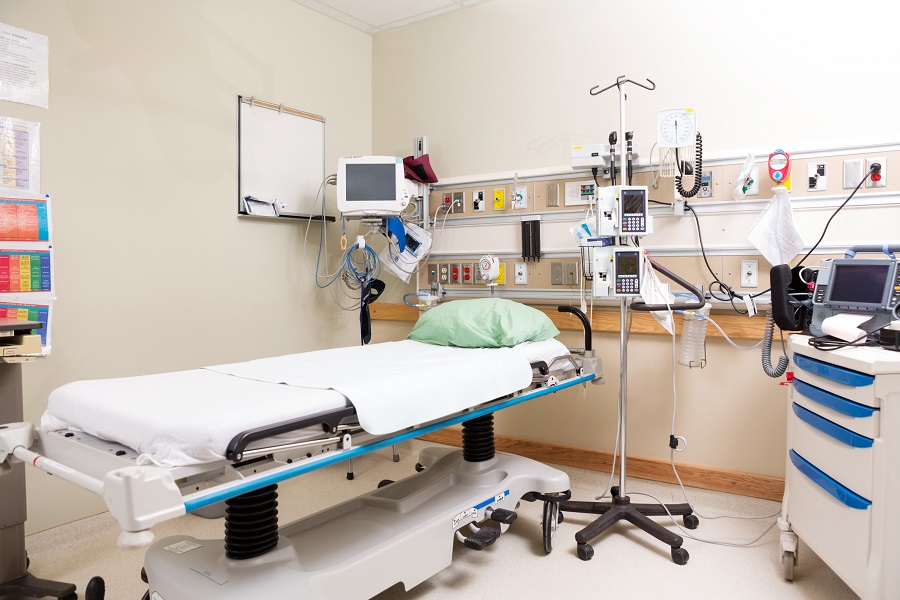
The emergency room (ER) is where you find immediate care during life’s unforeseen health crises. While the primary focus is, and should be, receiving the necessary medical treatment, the financial aspects of going to the emergency room can’t be ignored. Unexpected healthcare costs can lead to significant financial strain, making an already challenging situation even more stressful. Here are 10 financial tips to keep in mind, aimed at empowering you to handle the monetary aspects of emergency care more confidently.
1. Understand Your Insurance Coverage
Before an emergency strikes, familiarize yourself with the specifics of your health insurance plan. Know which local ERs are in-network, as visiting an out-of-network facility can result in higher out-of-pocket costs. Understand your deductible, co-pay, and co-insurance requirements for ER visits. If you’re unsure, contact your insurance provider for clarification. This knowledge can save you from unexpected bills later on.
2. Know the Difference Between ER and Urgent Care
Understanding when to visit an ER versus an urgent care facility can significantly impact your medical bills. Urgent care centers are equipped to handle non-life-threatening conditions and are often much cheaper than going to the emergency room. If your situation isn’t critical, considering urgent care as an alternative can save you money without compromising the care you receive.
3. Be Prepared with Essential Information
When you arrive at the ER, having your insurance card, photo ID, and a list of any medications, allergies, and pre-existing conditions readily available can streamline the registration process and ensure you’re billed correctly. This preparation can also assist medical staff in providing the most appropriate care quickly.
4. Inquire About Costs
While it might feel awkward, asking about the cost of tests, treatments, and procedures during your ER visit is within your rights. If an alternative, less expensive treatment is available, discussing options with your healthcare provider can help keep costs down. Remember, you have a say in the care you receive.
5. Ask for Generic Medications
If you’re prescribed medication during your ER visit, asking for generic versions can reduce costs significantly. Generic drugs have the same active ingredients as brand-name drugs and are just as effective but at a fraction of the price.
6. Review Your Bill Carefully
Once you receive your medical bill, review it thoroughly for any inaccuracies or charges for services you didn’t receive. Mistakes can happen, and identifying them early can save you from paying more than you owe. Don’t hesitate to question charges or ask for an itemized bill for clarity.
7. Understand Payment Plans
If you’re facing a high ER bill, inquire about payment plans. Many hospitals offer options to pay over time, sometimes without interest. Knowing you have a plan to manage the cost can alleviate some of the financial stress associated with going to the emergency room.
8. Know Your Rights and Assistance Programs
Familiarize yourself with healthcare laws and patient rights in your state, including any protections against surprise billing. Additionally, explore whether you qualify for financial assistance programs offered by the hospital or external organizations. These programs can offer relief to those who meet certain income or medical necessity criteria.
9. Keep All Receipts and Documentation
Maintain a file of all documents related to your ER visit, including bills, receipts, and explanation of benefits (EOB) statements from your insurance company. This documentation is crucial for tracking your expenses, disputing charges, and for tax purposes if you’re deducting medical expenses.
10. Consider a Health Savings Account (HSA) or Flexible Spending Account (FSA
If your insurance plan is compatible with a Health Savings Account (HSA) or you have access to a Flexible Spending Account (FSA), utilizing these accounts can save money. Contributions are pre-tax, reducing your taxable income, and can be used to pay for qualified medical expenses, including those from ER visits.
Empowering Your Emergency Care Decisions
Going to the emergency room can be overwhelming, but being financially informed can help mitigate some of the stress associated with the unexpected costs of emergency care. By keeping these 10 considerations in mind, you’ll be better equipped to navigate the complexities of healthcare billing and focus on what’s most important—recovery and health. Understanding your financial options and rights puts you in a stronger position to make informed decisions about your emergency care and manage the financial implications more effectively.
Health Costs to Consider As You Age
How Health Insurance Helps With Financial Security
|||-------------------------------------
By: Toi Williams
Title: 10 Financial Considerations You Should Be Aware of Before Going To The Emergency Room
Sourced From: www.dinksfinance.com/2024/04/10-financial-considerations-you-should-be-aware-of-before-going-to-the-emergency-room/
Published Date: Wed, 10 Apr 2024 14:20:50 +0000
Did you miss our previous article...
https://coachingbusinessowners.com/funding/dual-income-and-your-first-child-12-ways-to-still-live-your-best-life






